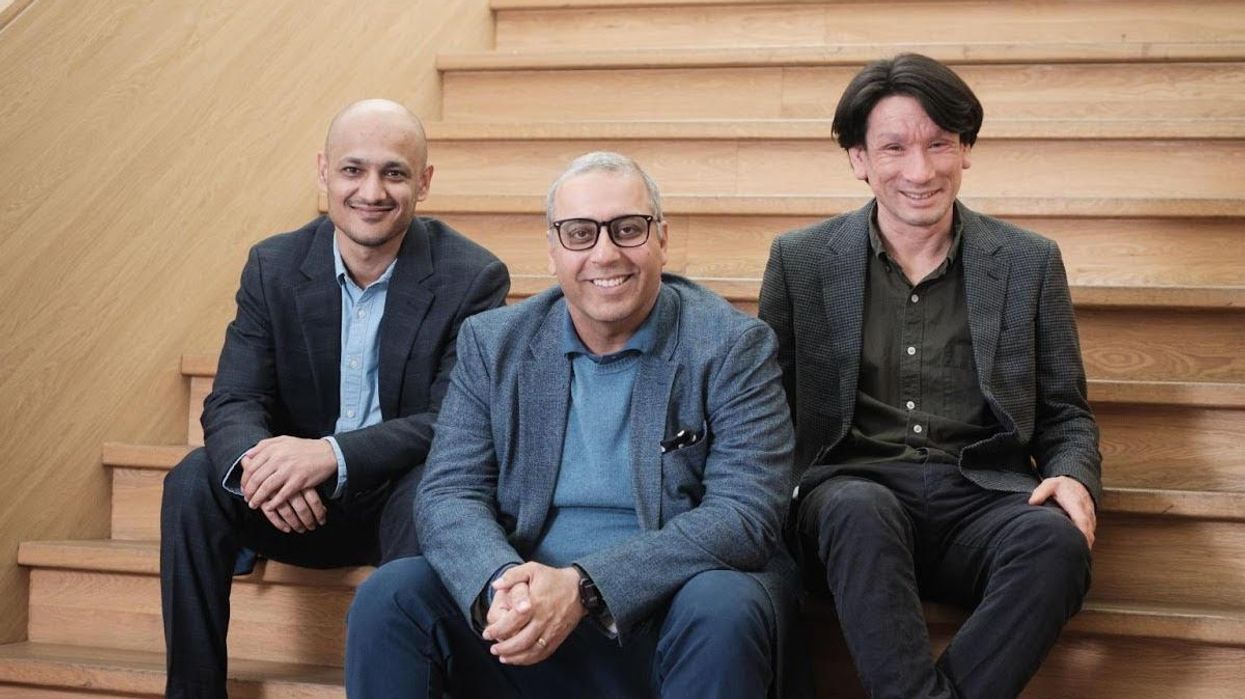Vamstar Raises $9.5M To Boost Its Medical Supply Chain Platform
Keerthi Vedantam is a bioscience reporter at dot.LA. She cut her teeth covering everything from cloud computing to 5G in San Francisco and Seattle. Before she covered tech, Keerthi reported on tribal lands and congressional policy in Washington, D.C. Connect with her on Twitter, Clubhouse (@keerthivedantam) or Signal at 408-470-0776.

In early March 2020, as the world stood on the precipice of the COVID-19 pandemic, the World Health Organization warned countries around the globe of a pending medical equipment shortage. Sure enough, in a matter of weeks—as coronavirus case numbers and deaths skyrocketed and much of the world sheltered in place—face masks, gloves and other personal protective equipment (PPE) became scarce, as suppliers jacked up prices and individuals hoarded what had become a precious resource.
Hospitals were not exempt from this, with many slow to source and provide PPE and other medical devices to clinicians dealing with influx of patients—many of whom were severely ill and dying.
“People died because hospitals did not have the right product to treat them,” according to Praful Mehta, the co-founder and CEO of supply chain startup Vamstar. “This is a supply chain challenge.”
Vamstar—a Los Angeles- and London-based venture which runs an AI-enabled sourcing and procurement platform for medical supplies and pharmaceuticals—announced a new $9.5 million funding round Wednesday that should help it address such inefficiencies in the health care supply chain. The Series A round was led by Alpha Intelligence Capital and the Dutch Founders Fund, who were joined by existing investors BTOV Partners and Antler.
Vamstar launched in 2019 and has since onboarded 86,000 hospitals and clinics in more than 80 countries to its platform—an all-in-one B2B marketplace that connects them with the medical suppliers and pharmaceutical companies who can provide the goods they need. The platform deploys machine learning to more efficiently connect buyers with suppliers based on what they need, how much they need and how soon they need it.
It also helps suppliers predict, based on buyer queries, how much they will need to stock up on certain items, which could help mitigate shortages in the future. Buyers, in turn, are alerted to stock up on goods before prices are predicted to increase. According to Mehta, buyers on Vamstar’s platform are able to procure the medical equipment they need in one-quarter the usual time, on average.
“There is the need for a solution that is networked, that is connected, that makes health care a complete ecosystem,” Mehta said. “There's a lot of talk about the health care ecosystem, [that] it's one unit—but actually it's not, it's highly fragmented.”
The pandemic brought to light the medical supply chain’s worst-case scenario: If a medical buyer needs to source a device, drug or supply whose local distributor has been depleted, it must then contact several other suppliers who are selling it at varying prices, prolonging the buying process.
“[Buyers] had to scan the market locally, regionally, nationally and internationally because, with what happened with COVID, your local sources of supplies were completely exhausted, which is often the case in healthcare,” Mehta said.
The new funding will go toward further developing Vamstar’s platform to make the transaction process quicker and more intuitive for both buyers and sellers, according to the company.
Vamstar is one of several startups tackling the fragmented health care supply chain. Others include Switzerland-based Hystrix Medical, which also operates a B2B marketplace for medical products, and Illinois-based Hybrent, which works closely with hospitals to source medical equipment.
“These problems that we are addressing in our industry have been problems for a very long time,” Mehta noted. “It's just that COVID exposed those problems to the public; it just highlighted the inefficiencies of the supply chain. And what we saw as a result of that was a massive loss of life.”
- Is Telemedicine At a Tipping Point? L.A. Doctors Hope So - dot.LA ›
- How an LA Hackerspace Became a Lifeline for Hospitals, Tribal ... ›
- Greater Good Health Raises $10M To Fix America's Doctor Shortage ›
- Vamstar, Tapcheck Raise Venture Capital Funding - dot.LA ›
Keerthi Vedantam is a bioscience reporter at dot.LA. She cut her teeth covering everything from cloud computing to 5G in San Francisco and Seattle. Before she covered tech, Keerthi reported on tribal lands and congressional policy in Washington, D.C. Connect with her on Twitter, Clubhouse (@keerthivedantam) or Signal at 408-470-0776.



 Image Source: Valar Atomics
Image Source: Valar Atomics Image Source: Waymo
Image Source: Waymo Image Source: Apple
Image Source: Apple
